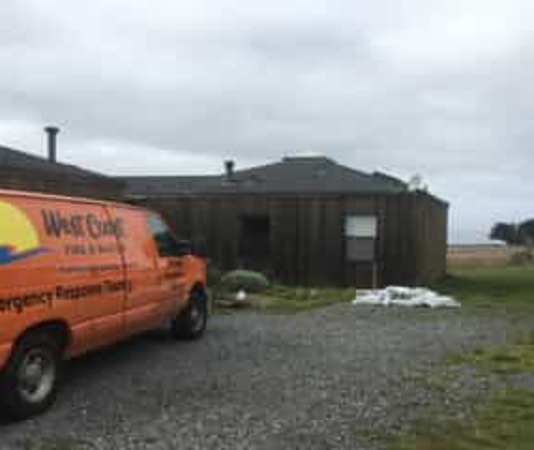
Deep Cleaning for COVID-19: What Does It Really Mean?
Are you planning to reopen your business after lockdown? Hire a coronavirus deep cleaner in Petaluma to deep clean your facility. Deep cleaning, as the name suggests, involves thoroughly cleaning different surfaces, areas, and equipment.
During a deep cleaning session, even those things that were not usually cleaned during the pre-coronavirus era are thoroughly cleaned.
Cleaning vs.Decontaminating
Cleaning refers to getting rid of dust, dirt, and debris from surfaces or materials. Usually, a mixture of soap and water or a mild commercial cleaner is used for cleaning.
Decontaminating or decontamination is the process of sterilizing surfaces by killing harmful bacteria, viruses, and other microbes.
When is Deep Cleaning for COVID-19 Necessary?
There is no formal definition of deep cleaning. The term itself isn’t officially recognized by the CDC, the WHO, or the EPA and is usually used to describe a set of cleaning processes and procedures developed to eliminate harmful bacteria and viruses.
Deep cleaning can be time-consuming. You may have expenses beyond those usually incurred by your business. Before you undertake a deep cleaning initiative, make sure you have a solid plan.
It is difficult to deep clean a facility while it is open and operating. You will either have to close your business or deep clean your facility after office hours.
As a business owner, you are responsible for ensuring the safety and wellbeing of your customers and employees.
In the current fear-based environment, people are reluctant to visit restaurants, hospitals, labs, and offices. Your employees may be anxious about returning to work. To ensure a safe and healthy workplace, undertake a deep cleaning initiative as soon as possible. Deep cleaning should be ongoing and not a one-time exercise. Develop daily, weekly, and monthly plans.
What Needs to be Deep Cleaned?
You do not need to clean everything on a regular basis. When deep cleaning surfaces, focus on high-touch surfaces such as lift buttons, doorknobs, laptop and desktop screens, light switches, cabinet handles, and countertops.
When deep cleaning areas, focus on places where germs and bacteria thrive. Typical examples include the pantry area, kitchens, and bathrooms.
If you own a restaurant, remember to deep clean your stock room and commercial restaurant appliances made from stainless steel.
Where to Begin
In addition to deep cleaning high-touch surfaces, focus on your walls. Pay special attention to surfaces that customers and employees touch frequently. Think about areas where customers and employees meet.
Remember to deep clean hidden surfaces attached to obvious surfaces such as the underside of tabletops, the outside and underside of sink bowls, and the top of refrigerators.
Tools & Products for COVID-19 Deep Cleaning
If you already have a deep cleaning plan in place, you most likely have tools and equipment for the job.
You will need an EPA-approved cleaning product, a mild commercial cleaner, soap water, paper towels/rags, foggers, and safety gear such as hand gloves, eyeglasses, and masks.
The Process
Start by cleaning surfaces to get rid of accumulated dirt and dust. After removing dirt and debris, wipe down surfaces using soap and water or a commercial cleaner. Thoroughly rinse and wipe frequently/high touched surfaces.
Next, disinfect using an EPA-approved cleaning product. Make sure the product you are using is appropriate for the surfaces you want to deep clean. Follow the manufacturer’s instructions.
If you have a commercial dishwasher, you can wash flatware, dishes, and cookware in it using an EPA-approved safe cleaning product.
Paper Towels/Rags?
Should I use paper towels/rags or cloths for deep cleaning? This is one of the most common questions people ask themselves before embarking on a deep cleaning project.
Both have their pros and cons. Paper towels are easily disposable and are less likely to cross-contaminate surfaces. Rags and clothes can be used multiple times and are less expensive.
If you use a cloth cleaner to wipe surfaces, it shouldn’t be used again before it is properly laundered to avoid any chance of cross-contamination.
Consider using both paper towels and clothes. You can use a cloth and warm soapy water for initial cleaning.
Once you get rid of dirt and debris, use an EPA-approved cleaning product to kill bacteria and viruses on the surface and wipe down with a paper towel. Remember to dispose of the paper towel to minimize chances of cross-contamination.
Think Twice Before Using Linens, Rugs, and Drapes
There is not enough research on how the coronavirus operates on linens, rugs, and drapes. You can wash them between uses, however, remember that many linens are made from materials that are tricky to clean and disinfect. Use linens, rugs, and drapes only if you are willing to change them frequently.
Foggers and Cold Steamers
Foggers and cold streamers can be used as an adjunct to other tools and equipment to deep clean areas. Foggers utilize a decontaminating solution and a sprayer to create positively charged particles.
Most surfaces are negatively or neutrally charged. Negative charges attract positive charges, and the spray particles cling to the surface.
The West Coast Fire & Water team consists of trained coronavirus deep cleaners in Petaluma. We are committed to helping businesses keep their customers and employees safe in these times. To discuss your requirement with one of our experts, call (707) 504-3708.

